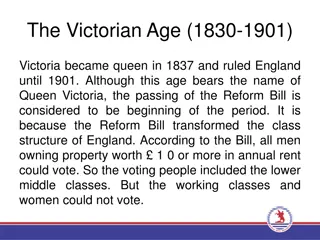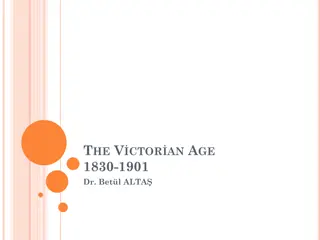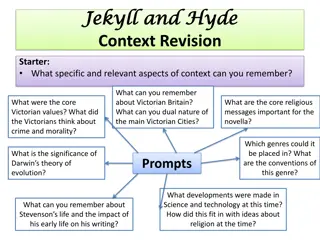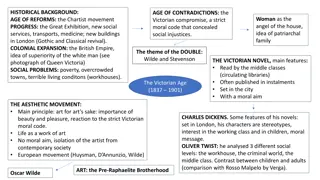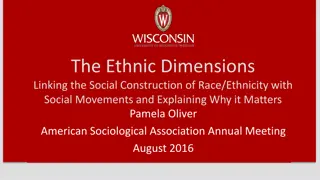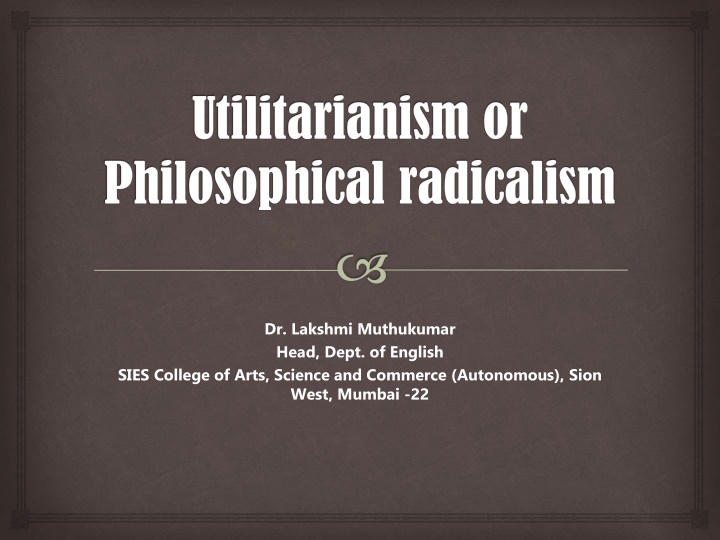
Utilitarianism and Philosophical Radicalism through Dr. Lakshmi Muthukumar's Insights
Delve into the foundation and impact of Utilitarianism and Philosophical Radicalism, as explained by Dr. Lakshmi Muthukumar of SIES College of Arts, Science, and Commerce. Explore the core principles, achievements, limitations, and the evolution of these moral theories through the contributions of Jeremy Bentham and John Stuart Mill. Gain a comprehensive understanding of how these philosophies have influenced societal reforms and ethical considerations.
Download Presentation

Please find below an Image/Link to download the presentation.
The content on the website is provided AS IS for your information and personal use only. It may not be sold, licensed, or shared on other websites without obtaining consent from the author. If you encounter any issues during the download, it is possible that the publisher has removed the file from their server.
You are allowed to download the files provided on this website for personal or commercial use, subject to the condition that they are used lawfully. All files are the property of their respective owners.
The content on the website is provided AS IS for your information and personal use only. It may not be sold, licensed, or shared on other websites without obtaining consent from the author.
E N D
Presentation Transcript
Utilitarianism or Philosophical radicalism Dr. Lakshmi Muthukumar Head, Dept. of English SIES College of Arts, Science and Commerce (Autonomous), Sion West, Mumbai -22
The Utilitarian Theory One of the best known and influential moral theories Its core idea was that whether actions are morally right or wrong depends on their effects Purpose of morality was to make life better Jeremy Bentham regarded as founder of modern utilitarianism The greatest happiness principle , or the principle of utility, forms the cornerstone of all Bentham s thought
Achievements of the Philosophical Radicalism The greatest happiness principle led to some Humanitarian Reform Reforms due to Utilitarian Philosophy: Mitigation Abolition: Pillory and Hanging in chains Curtailing of capital punishment Better protection of animals Utilitarian opposed cruelty The Reform Bill of 1832
Limitations of Utilitarianism Extended the doctrine of Laissez Faire or non- interference Social Laws: Factory Acts Mines Act of 1842 Acts of 1867 and 1873 Acts of 1834 and 1864 Acts of 1871-1875
Full of paradoxes The identification of the good of each man with the greatest happiness of greatest number Followers did not realise the contradictions in their creed
Mills contribution to Utilitarianism John Stuart Mill was the first to realise the limitations of Philosophical Radicalism. Mill s attitude was until society is better constituted, we cannot hope for any great reform of the individual . Although he supported Bentham he reconsidered the basis of utilitarianism thought focusing more on the spiritual interest rather than the material interests of society.
While Benthams concept was the philosophy of the rising middle class, Mill s extension of the principle was to serve the rising working class. Mill as the upholder of individual liberty realised that not less but more interference by the government was necessary to ensure the greatest good of the greatest number . Mill s works such as Utilitarianism and A System of Logic brought revolutionary change in the notion of Philosophical Radicalism.
Contributions of Utilitarians to English Literature JEREMY BENTHAM : His first publication in 1776 Fragment of Government. Followed by translation of Bergman s essay on the Utility of Chemistry in 1783 and in 1787 by his Defence of Usury. In 1789 he published his book An Introduction to the Principles of Morals and Legislation. Built the Panopticon to control and inspect convicts.
Established periodicals named The Westminster Review in 1824. His method of writing was unusual. Two traits of his personality: 1. The firm grasp of a single principle 2. A truly astonishing mastery of details His words incorporated in the English Language: utilitarian, international and codification.
JOHN STUART MILL: His Autobiography recorded the depressing and paralysing effect on his personality. He arrived at two conclusions: 1. He agreed with his father on the idea of The greatest happiness of greatest number . 2. Analysis of his own mental condition- intellect and emotion. Wordsworth s poems gave him what he needed. A System of Logic 1843- justification of the principles of Utilitarian Philosophy.
Though his writings lack literary inspirations he was a great social and political thinker. As a Political Thinker: his reputation rests on his treatise On Liberty and Representative Government. As a Social Thinker: Different attitude from Benthamite individualism. In Utilitarianism 1863 - gave a clear exposition of his modified Utilitarianism and On Liberty an eloquent defence of individual. In On Subjection of Women he believed in the equality of sexes and states; made a convincing case for the rights of women.






